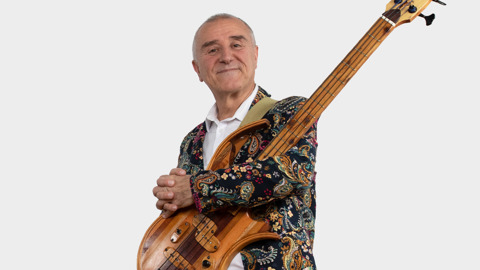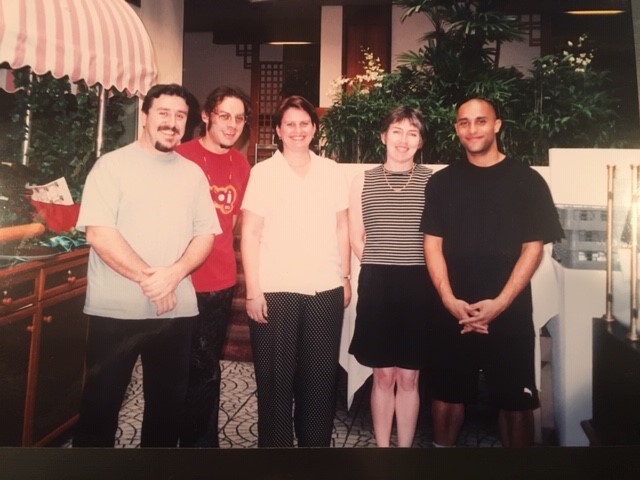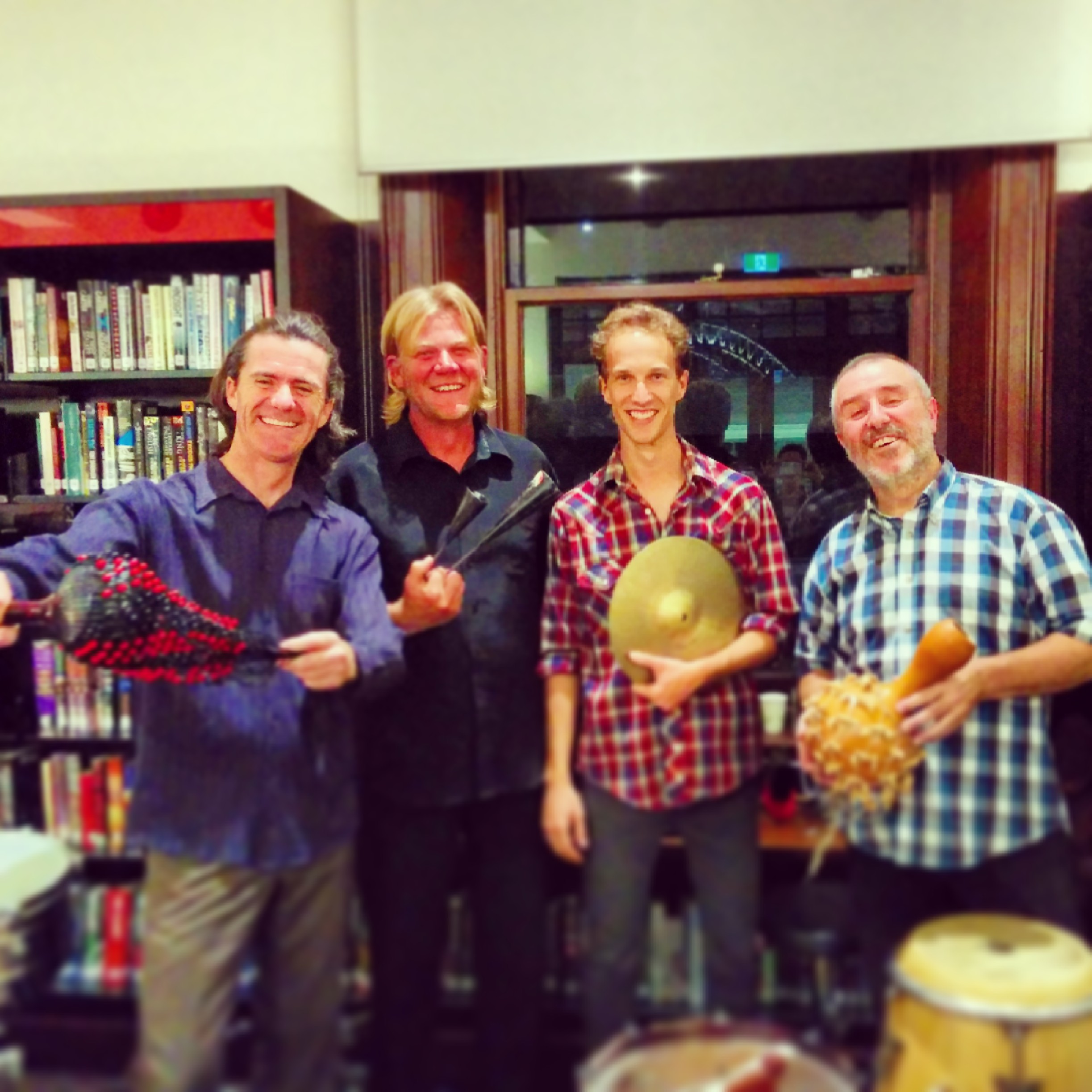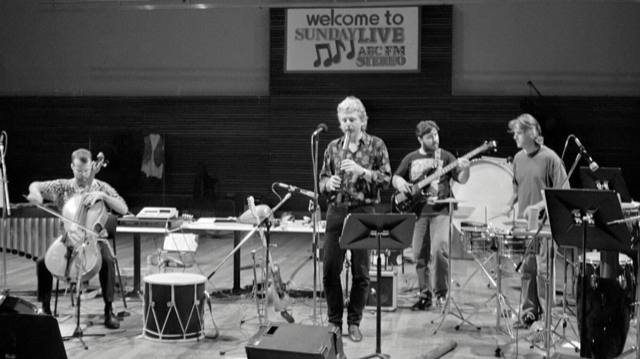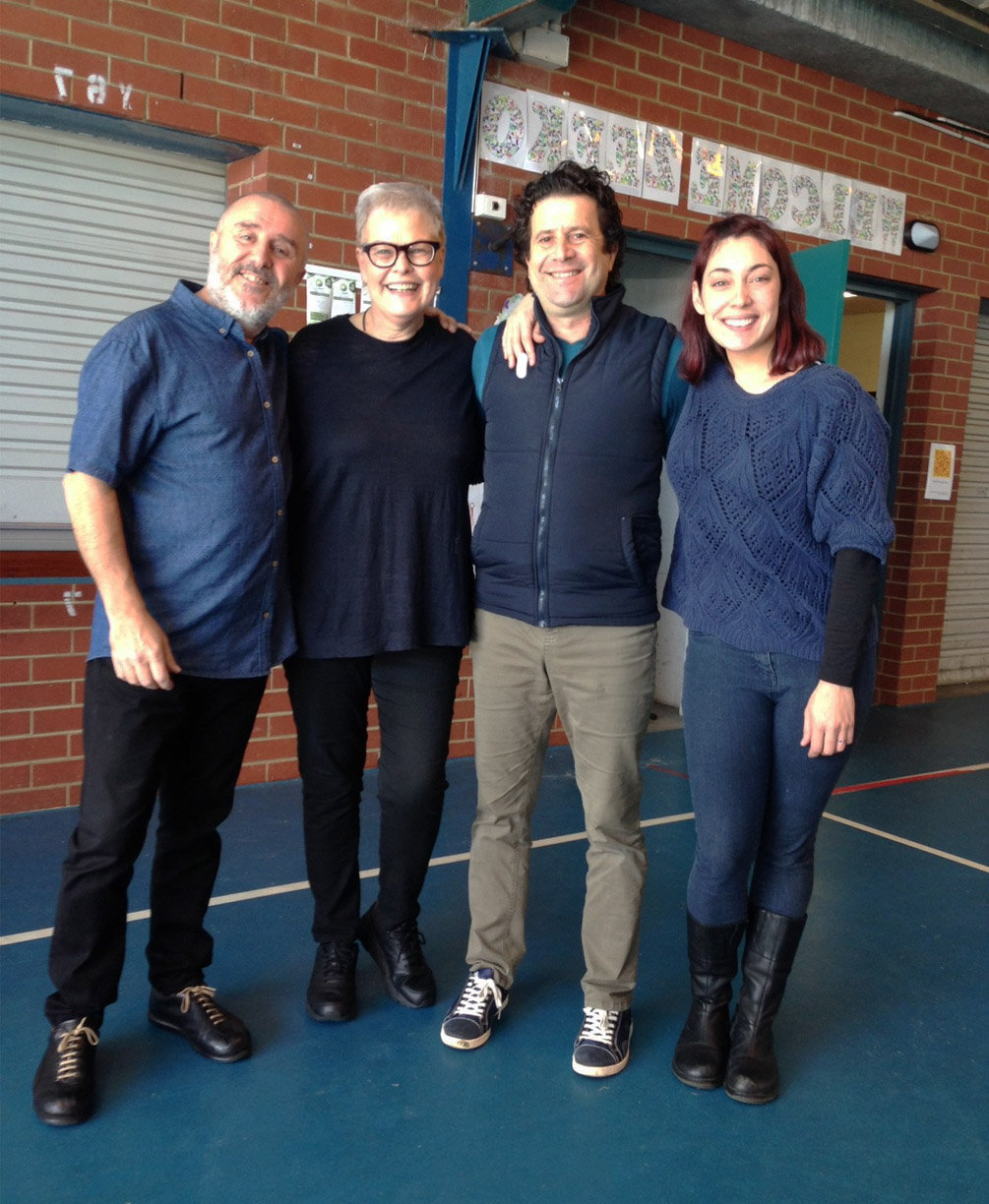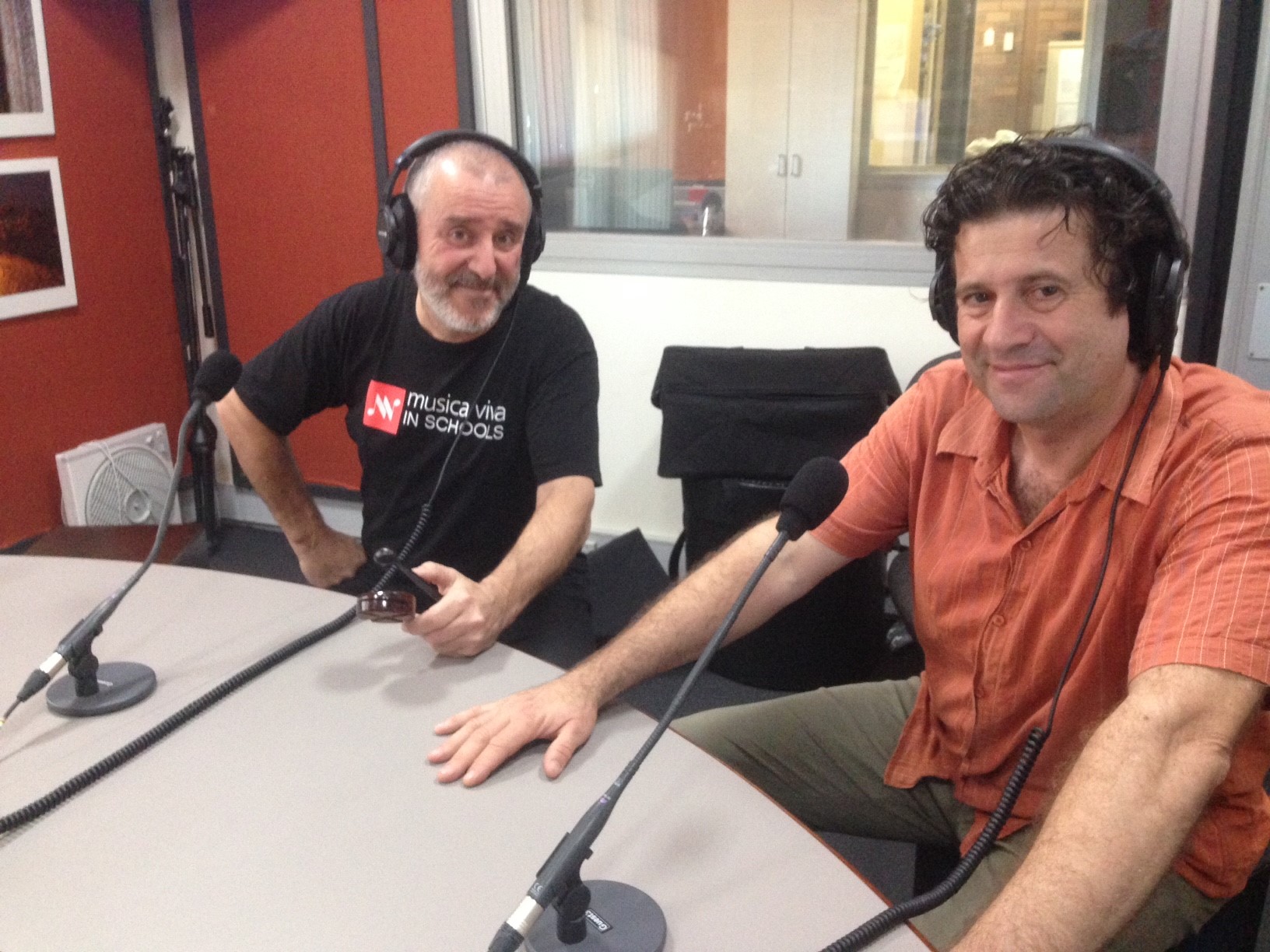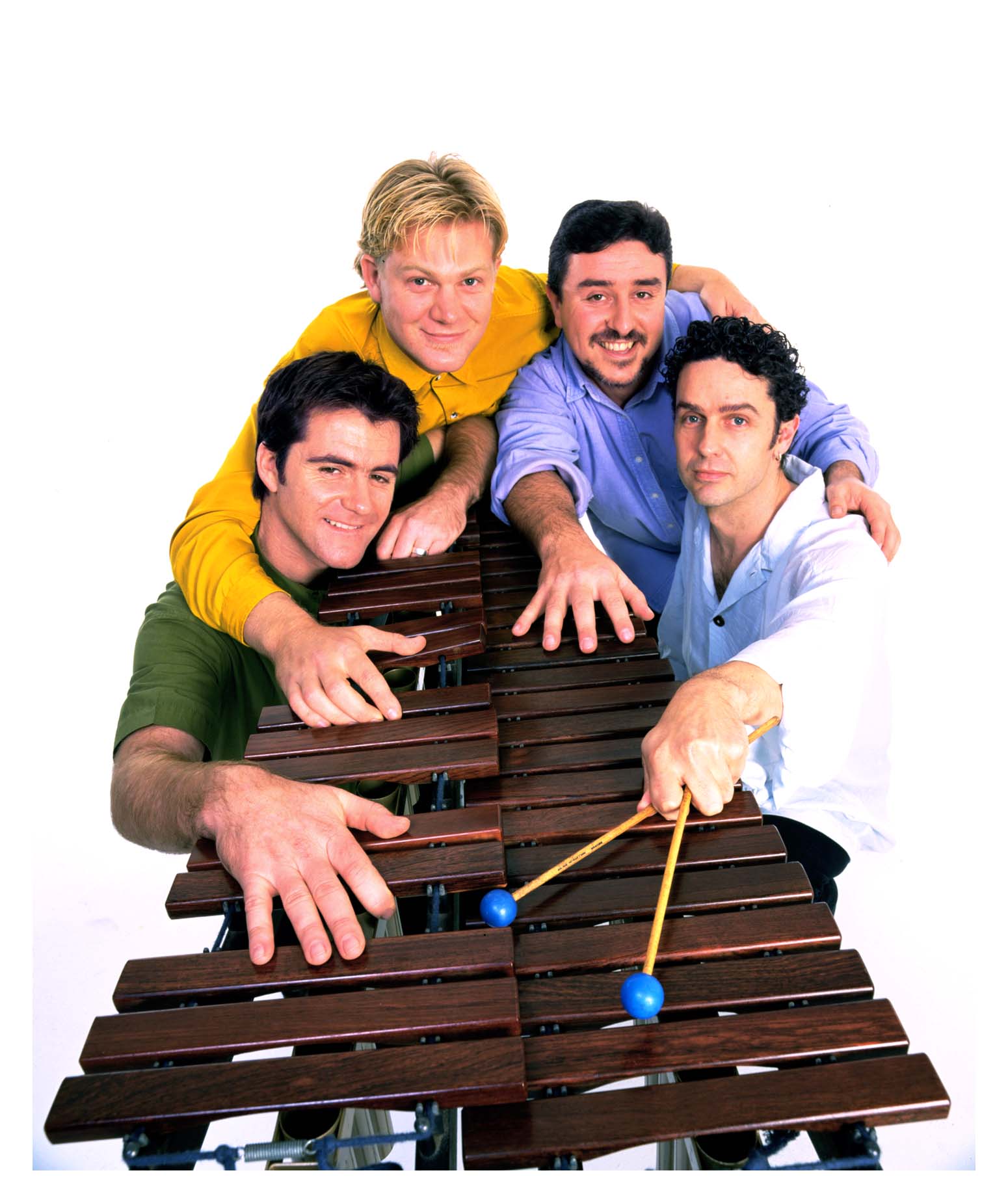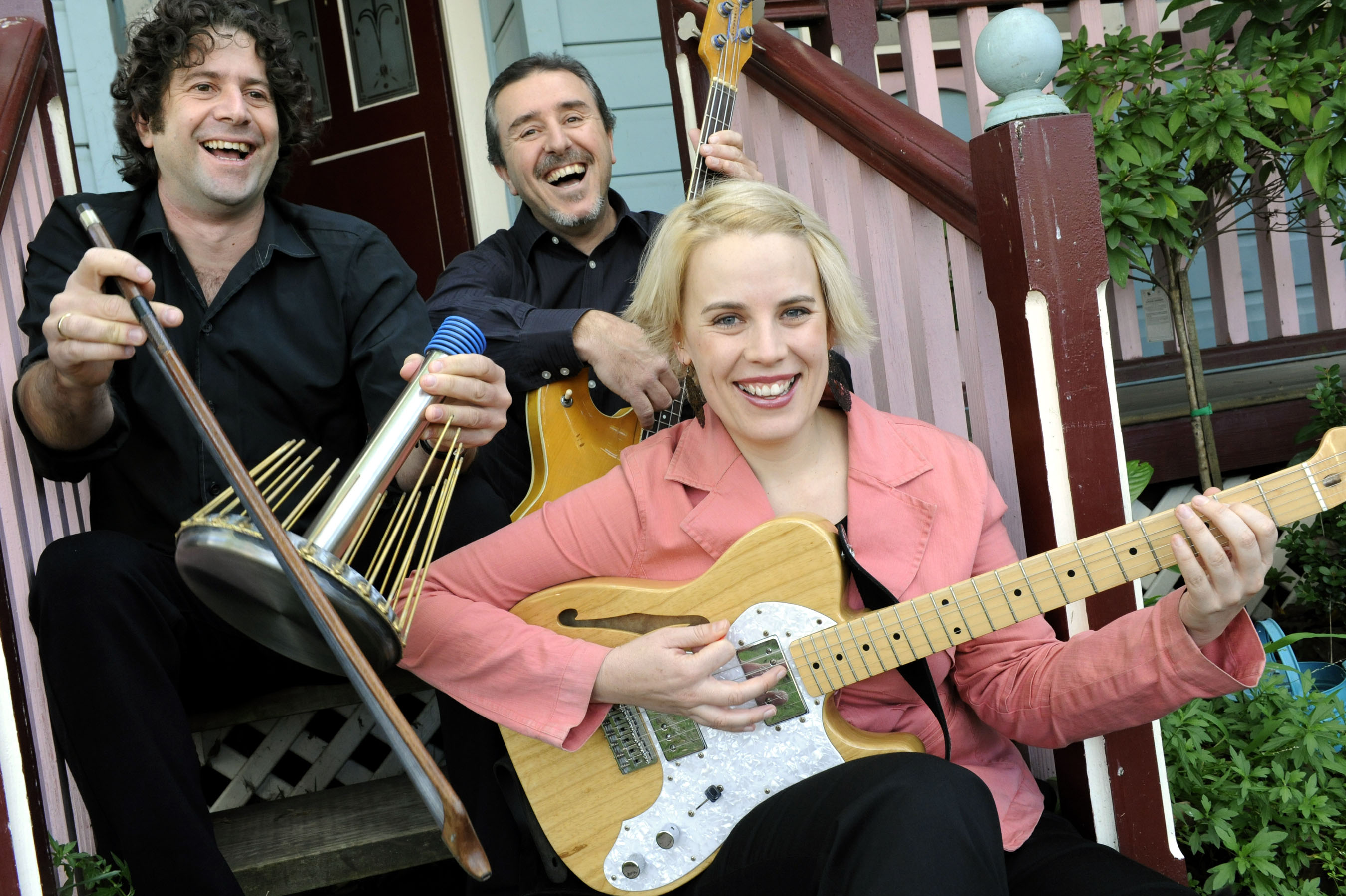The second installment of our Musical Journey series turns its focus to Jess Ciampa, a very familiar face in the Musica Viva In Schools roster who you may recognize from any one of several touring groups over the years.
Jess, who currently performs as part of the Two Wheel Time Machine ensemble, discovered his love for music in the school auditorium during his high school career, when Musica Viva In Schools came to Fairfield and performed for his school. It was after a short conversation with one of the brand members at the end of the performance that Jess knew what he wanted to do with his life — music!
We caught up with Jess to learn more about his introduction to Musica Viva, some of the groups he has performed with over the years, his love for education students all about music, and more.
Can you tell us when you first introduced to Musica Viva? How did your paths cross?
My first experience of Musica Viva was having a Musica Viva In Schools groups came to play at my high school, Patrician Brothers, Fairfield, in the early 80's. We had two amazing music teachers start at the school around that time and they were well aware of the importance of live music, so they signed the school up for the Musica Viva In Schools program. I was in year 11 and these were the first live concerts I had ever experienced. I remember hearing a very early incarnation of the ACO as well as a group called The Posh. The group that really floored me, though, was Galapagos Duck. We were listening to Australian Jazz royalty, though I had no idea of that at the time. I had been playing trumpet since year 7. When it came to question time at the end of the concert, I naively asked the trumpeter in the group what he did for a job. He simply replied that his job was playing the trumpet. That completely opened up my world.
Tell us about your very first Musica Viva In Schools tour. What was the performance about, what was it like taking your concert on the road, how was it received by students and teachers?
It's a bit of a distant memory, but my first Musica Viva In Schools tour would have been around 1987. I had swapped from trumpet to percussion in the third year of a B.Mus.Ed course at the NSW Conservatorium and my percussion teacher, Michael Askill, asked me to fill in for him with a group called Southern Crossings. The group was led by the wonderful Michael Atherton and had the amazing John Napier on cello. We were labelled as world music at the time, and the school show had African songs, Asian influenced instrumentals, Turkish and South American songs as well as originals written by John and the two Michaels. Improvisation played a big part in the show. The students in the show participated mostly through singing, but also through some rhythmic activities. Pretty sure my first tour was in the Riverina. A huge area, with a lot of driving between shows. I seem to remember being away for three weeks. The show was always well received, with the performers being super engaging, and Michael Atherton (who did most of the talking) always had a great connection with the kids. I learnt a lot playing shows in this group, and was thrilled when they asked me to join as a permanent member. The quartet version went on to do hundreds of school shows, as well as many overseas tours.
How many groups have you been a part of over the years for Musica Viva In Schools? Can you run me through each ensemble and what the concert experience was like?
When Southern Crossings folded, John Napier and I decided to continue, forming a group called Krakadak by adding guitarist Jonathan Pease. The music was similar in style to what Southern Crossings had been doing, but with the injection of some great originals from John. When John Napier left the group we added bass player John Encarnacao. At some point it's name had changed to Imbosima. This group eventually morphed into Zeeko, becoming a little more pop influenced along the way, as Jess Green and David Hewitt joined the group. At the same time that I was playing with Imbosima I was also working in schools with the percussion quartet, B'tutta (they had originally been called Offbeat Percussion). I played with B'tutta in schools for around 20 years. It was a pretty exciting and accessible show, being percussion based (although I also played some electric bass) and our first show featured many exciting pieces from composer and group member David Hewitt. Over the years I have been asked to fill in with a couple of other Musica Viva In Schools groups and really enjoyed working with The Sousaphonics and The World According To James. Both groups shared roots in the world of Jazz, with improvisation playing a large roll in their shows. So, if we count Krakadak/Imobosima/Zeeko as one group, I have played with 5 Musica Viva In Schools groups over the last 32 years.

